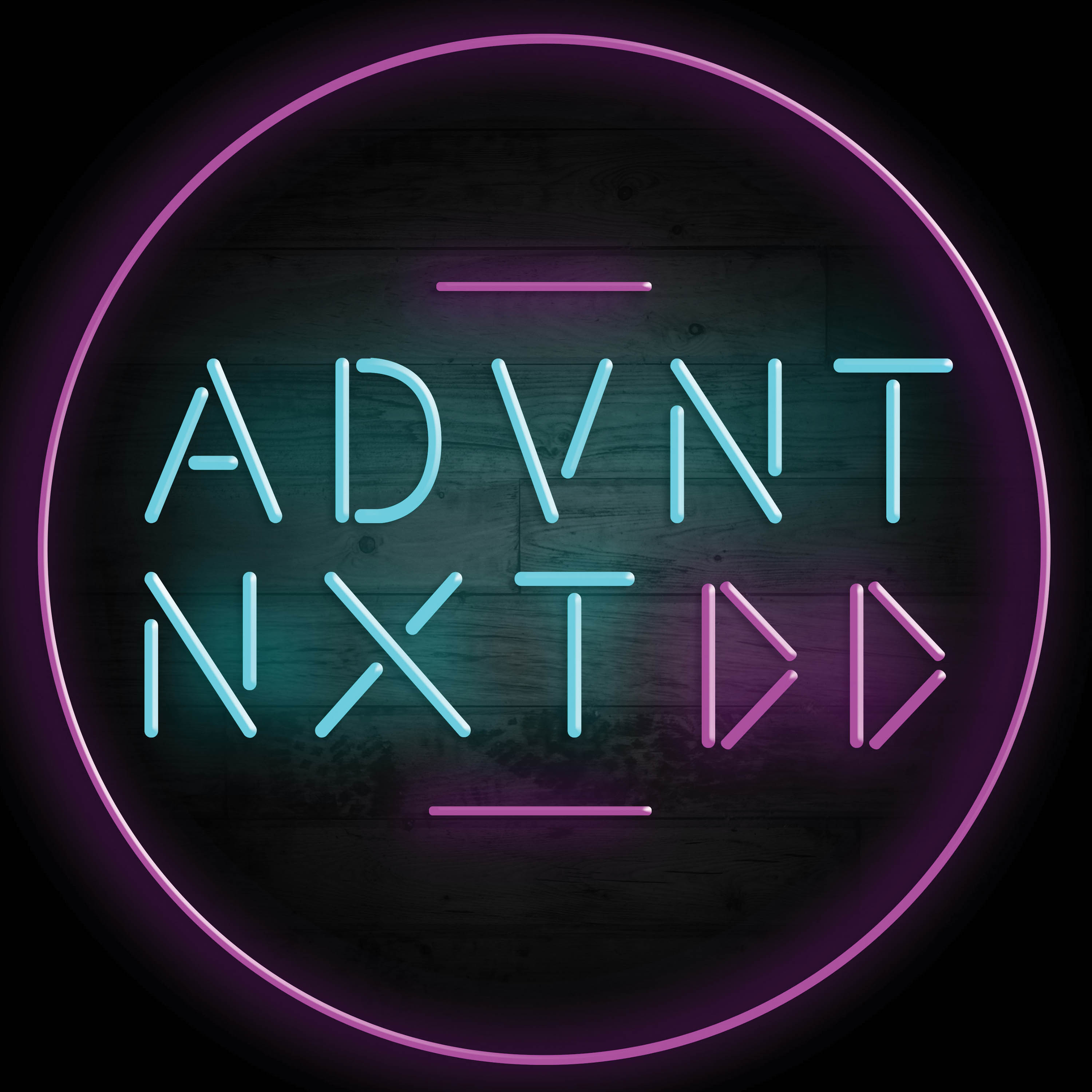Episodes
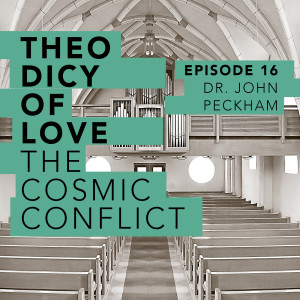
Friday Jul 12, 2019
Theodicy of Love Pt. 2: The Cosmic Conflict (Dr. John Peckham)
Friday Jul 12, 2019
Friday Jul 12, 2019
If we could peel back the layers of the material world and peer into the realms of the unseen, what would we observe? On this episode of Advent Next, we discuss the Biblical framework of the cosmic conflict between good and evil as well as how this worldview helps to frame our understanding of the justice of God in an evil world.
“If you think that everything happens just the way God wants it to happen already, then why should you pray? Not only that why should you intervene to stop things like injustice?”
If God is omniscient and already knows my needs, and the thoughts of my heart, what’s the point of prayer? When understanding the cosmic conflict as the Bible frames it, in which man is lawfully under the jurisdiction of Satan as the result of sin, then we also have to take into consideration the fact that there may be rules of engagement by which God must lawfully abide. It’s often said that when we pray, our prayers are simply to help us become more aware of God’s presenc. But in light of the cosmic conflict prayer just might be our legal access to heaven’s help in which God has covenanted with his people saying, “When you pray, I will answer you. When you call to me, I will respond.” (Isaiah 58:9).
“History really matters, what we do really matters. It’s not just whatever is going to happen is what God wants to happen.” The cosmic conflict worldview helps us to understand that God does not always get what He wants. Everything in this world does not happen as He would wish and if they do not happen as He would wish then our choices matter.
“Presumably if every creature in the universe had come to the conclusion that the Devil’s allegations were false, then God could bring judgment. But until those allegations are settled at the level of our thoughts…if God were to prematurely destroy evil that would just raise another host of questions that would perpetuate the problem.”
God is not just interested in our obedience, but He’s interested in our love. A person cannot love a tyrant, which is why God has spent an extraordinary amount of time trying to deal with the accusative claims made by Satan through the demonstration of His character, all while patiently bringing along the minds of many in understanding His love in the light of false allegations.
You can also listen on:
Facebook: www.Facebook.com/adventnext
Instagram: www.instagram.com/adventnext
Youtube: https://www.youtube.com/channel/UCF6IbZ5pEYtgoWf88hb7vHQ
Spotify: https://open.spotify.com/show/7cdgW0RKIrny6Ru47l61CE
Apple Podcast: https://podcasts.apple.com/us/podcast/advent-next/id1452748484
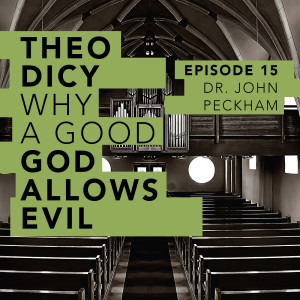
Sunday Jun 30, 2019
Theodicy of Love Pt. 1 (Dr. John Peckham)
Sunday Jun 30, 2019
Sunday Jun 30, 2019
The attempt to understand how God can be just and good in light of the countless evils that take place in the world is the purpose and study of theodicy. This week on Advent Next our guest is Dr. John Peckham professor of Theology and Christian Philosophy at Andrews University, and author of the new book "Theodicy of Love."
“There doesn’t seem to be a 1-to-1 correlation of ‘you were good so you get good things,’ and ‘you were bad so you get bad things.’ In fact, the Bible argues in exactly the opposite.” Trying to answer huge life-altering questions about why God allows injustice if He is inherently good requires more than mere simplistic answers. Peckham walks us through some key aspects of creating the kind of framework that can help us begin to make sense of these types of questions.
We also discuss some of the other theories surrounding the question of theodicy and ways they can either fall short or are limited in scope. One of these theories is the Free Will Defense. It argues that bad things happen because we have the freedom to choose things other than God would want. “And there’s no other way that creatures could have the kind of agency, the kind of freedom that’s necessary for love unless creatures actually have the ability to make decisions and some of those decisions might be otherwise than God wants and carry out at least some of the consequences of those decisions.”
However, Peckham realizes the limitations to the Free Will Defense since a lot of things in life that happen in life that are not the result of our direct choices.
While we explore the proper framework for tackling such enormous questions regarding why suffering exists if God is just, the main premise of theodicy, Peckham leaves us with this advice: “In the book of Job, we often overlook this, but for the first week Job’s friend came and they just sat with him. But they get into trouble when they open their mouth and try to explain things they don’t know.” Sometimes the best comfort we can provide is to be present and not theologize about the reasons why God allowed someone else's pain. Since in truth, we really know very little about the reasons why or what God is doing behind the scenes.
You can also listen on:
Facebook: www.Facebook.com/adventnext
Instagram: www.instagram.com/adventnext
Youtube: https://www.youtube.com/channel/UCF6IbZ5pEYtgoWf88hb7vHQ
Spotify: https://open.spotify.com/show/7cdgW0RKIrny6Ru47l61CE
Apple Podcast: https://podcasts.apple.com/us/podcast/advent-next/id1452748484
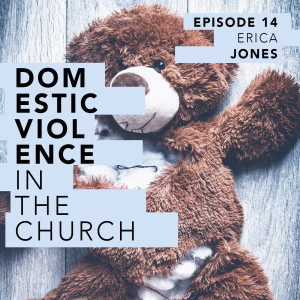
Friday Jun 14, 2019
Domestic Violence In the Church (Erica Jones)
Friday Jun 14, 2019
Friday Jun 14, 2019
“I’m not asking you to be in expert in [domestic violence], I’m asking you to know how to refer. There’s no excuse for not knowing the basics of how to help a victim and even if you can’t be the expert in that moment to know where to refer her and you absolutely to do not refer her back home.”
Domestic violence and the theological structures that compel victims to stay is our topic of discussion on this week's episode of Advent Next. On today's video podcast, we're continuing our conversation with Erica Jones, the Assistant Director of Women's Ministries for the North American Division and Coordinator for the End It Now campaign.
When it comes to learning how the church can better assist and protect women who have dealt with physical or sexual violence in the past or present, it is imperative that pastors and lay members be trained in how to respond appropriately so as not to create additional harm or retraumatize victims.
According to Steven R. Tracy in his Clergy Response to Domestic Violence "To quantify clergy beliefs about domestic violence, a questionnaire was sent to more than five thousand Protestant ministers in the United States.19 Four-fifths of the clergy who responded indicated that they had confronted domestic violence in their ministries and had counseled a wife abused by her husband. In spite of the fact that most of these clergy had some experience with wife abuse and had seen some of the damage it causes, 27 percent said that, if a wife would begin to submit to her abusive husband, God would honor her obedience, and the abuse would stop (or God would give her the grace to endure the beatings); almost one-fifth indicated that no amount of violence from an abusive husband would justify a wife leaving, and only 2 percent of the pastors said they would support divorce due to domestic violence." (Clergy Responses to Domestic Violence." CBE International. Accessed June 13, 2019. https://www.cbeinternational.org/resources/article/priscilla-papers/clergy-responses-domestic-violence.)
In this episode, we discuss how the End It Now campaign is working to empower survivors and raise awareness about domestic abuse and sexual assault within churches.
You can also listen on:
Facebook: www.Facebook.com/adventnext
Instagram: www.instagram.com/adventnext
Youtube: https://www.youtube.com/channel/UCF6IbZ5pEYtgoWf88hb7vHQ
Spotify: https://open.spotify.com/show/7cdgW0RKIrny6Ru47l61CE
Apple Podcast: https://podcasts.apple.com/us/podcast/advent-next/id1452748484
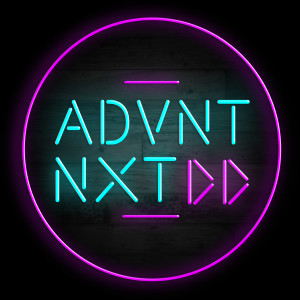
Friday Jun 07, 2019
Porn, Sex & the Church: Struggles of Young Women (Erica Jones)
Friday Jun 07, 2019
Friday Jun 07, 2019
Making ourselves vulnerable, present and available in order to enhance relationships with the next generation is the everyday work of Erica Jones, the Assistant Director for Women’s Ministries at the North American Division. She is also the coordinator for the End It Now campaign and oversees the blog Gorgeous2God, a blog dedicated to answering the curious questions of young women.
“You have to be willing to share pieces of yourself that show you’re a real person. Unfortunately, in the church, we haven’t been willing to do that.” On this episode of Advent Next video podcast, Erica gives us insight into how the next generation of young women is currently struggling not only with their adolescence but with their walk of faith. She also provides suggestions for how the church can do a better job to assist them as they take ownership of their beliefs and face an increasingly hostile and skeptical world.
“I have yet to visit a school, where, by the end of the weekend, I don’t have at least one woman who has been sexually assaulted or raped.” Erica also discusses some of the common themes found throughout the high schools she visits, which includes dating violence, sexual assault, pornography addiction, and premarital sex. “If we’re not answering those tough questions someone else is going to.”
Rather than hope that our young people are not dealing with these types of issues, Erica discusses how important it is for us to be ready to deal with the tough questions and to get rid of our “shocked faces.” Rather than be aghast at the stories we hear or how our youth are dressed, we should be ready to help our young sisters deal with the challenge of maturing and developing amidst the myriad pressures both within and outside the church.
“The question we get the most is dealing with anxiety… we showed that this is a place where we’re not going to criticize your faith or your prayer life. This is a real thing that happens.” Addressing mental health in a way that does not stigmatize those going through the throws of the struggles is also hugely important. How do we begin to create an atmosphere of safety and non-judgment so that others are willing to openly talk about their mental health issues without being accused of not having enough faith?
“Sixty percent have already had sex before they graduate high school.” “It’s not just enough to say ‘the Bible says…’ that doesn’t work anymore... we’re living in an age where the Bible is not their everyday go to.” Erica also discusses the reality of what young girls are experiencing as well as the importance of addressing the issue of porn addiction and premarital sex in a way that is not only relatable but rings with the truth of redemption and God’s grace.
You can also listen on:
Facebook: www.Facebook.com/adventnext
Instagram: www.instagram.com/adventnext
Youtube: https://www.youtube.com/channel/UCF6IbZ5pEYtgoWf88hb7vHQ
Spotify: https://open.spotify.com/show/7cdgW0RKIrny6Ru47l61CE
Apple Podcast: https://podcasts.apple.com/us/podcast/advent-next/id1452748484

Monday Jun 03, 2019
Rethinking "Mission" (Dr. Gerardo Oudri)
Monday Jun 03, 2019
Monday Jun 03, 2019
“Community is the lab where you see who you really are.” This week on Advent Next Video podcasts continuing our conversation with Dr. Gerardo Oudri and exploring how to think more holistically about mission and outreach as well as explore the importance of community.
It might be easy to see ourselves as loving and kind if we lived on an island all by ourselves. However, when we exist in close intimate spaces with other human beings, the heart, mind, and character are tested. While living life with others it becomes painfully apparent just how selfish we can be at times. Living in community helps to reveal the areas of our life where we need personal growth and self-sacrifice.
“The church can be the perfect place to hide your true identity.” As one of my favorite quotes from the show today, this statement highlights one of the misfortunate symptoms of holding to a purely “functional” approach to the way we do church. For example, if as a community we are more focused on behavior or the number of attendees or saying the “right things,” or having the “right” kinds of programs, we limit the scope of what our mission as a church truly is. If the church was created to help God fulfill His mission to restore the image of God in humanity, then there are a plethora of creative ways that we can approach this effort without being too narrow-minded or married to tradition.
“The problem is that sometimes we use the name ‘Jesus,’ but we’re not really gathering ‘in Christ’ in the fullest sense.” A lack of authenticity in our worship is one reason we see so many young people leaving the institution of the church and creating “church” that looks and feels more genuine. So what does it mean to be a church? If we are gathering in the name of Jesus, but are not truly gathering in the most authentic sense where there is true transparency, vulnerability, flexibility, and grace, then it’s possible that we might be our own worst enemies as far outreach is concerned.
“In Jesus’ time, many of the Pharisees were preaching the ‘right things,’ but many of them were outsiders in the end.” It’s a scary thought, but one thing we can learn from the Pharisees is that it is possible to know all the right answers and still flunk the test. We may know how to talk a good church game, but unless we have a real sense of the gospel and a strong sense of who Jesus is along with experiential knowledge of His grace, it could all be for nothing.
You can also listen on:
Facebook: www.Facebook.com/adventnext
Instagram: www.instagram.com/adventnext
Youtube: https://www.youtube.com/channel/UCF6IbZ5pEYtgoWf88hb7vHQ
Spotify: https://open.spotify.com/show/7cdgW0RKIrny6Ru47l61CE
Apple Podcast: https://podcasts.apple.com/us/podcast/advent-next/id1452748484
Or follow us on Facebook, Instagram or Youtube @ AdventNext
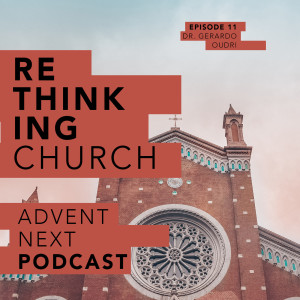
Friday May 24, 2019
Rethinking "Church" (Dr. Gerardo Oudri)
Friday May 24, 2019
Friday May 24, 2019
This week on Advent Next, our discussion revolves around ecclesiology, which in Christian theology, is the study of the church and it’s origins, practices, and relationship to the outside world.
Questions that ecclesiology helps us to answer are what is the role of the church in the world, who belongs to the church and can salvation take place outside of a person’s relationship to the institution?
On this episode, we are discussing Adventist Ecclesiology with Dr. Gerardo Oudri, who holds his DMin from Fuller Theological Seminary and is currently pursuing his Ph.D. in Ecclesiology from Andrews University.
The fundamental question comes down to “what is the church?” Is it the building, the traditions, and liturgy? Is it the people, or is it the theology that binds a community together?
In the exploration of the question of “how can we distill the essential elements of the church to make it adaptable to varied contexts?” we have invited Dr. Gerardo Oudri to share his thoughts.
In this week’s discussion of ecclesiology, we are laying the foundation for next week’s table talk in which we look at a more precise or even broader view of what makes up a church and if “mission” can be defined with broader outcomes in mind, then we just might be ready to do church in a different way.
You can also listen on:
Facebook: www.Facebook.com/adventnext
Instagram: www.instagram.com/adventnext
Youtube: https://www.youtube.com/channel/UCF6IbZ5pEYtgoWf88hb7vHQ
Spotify: https://open.spotify.com/show/7cdgW0RKIrny6Ru47l61CE
Apple Podcast: https://podcasts.apple.com/us/podcast/advent-next/id1452748484
Or follow us on Facebook, Instagram or Youtube @ AdventNext

Friday Apr 26, 2019
Cuba: Not Forgotten (Dr. Fernando Ortiz)
Friday Apr 26, 2019
Friday Apr 26, 2019
The country of Cuba often conjures up nostalgic images of classic cars from the 1950s. It's a country that has literally been frozen in time. After the Cuban Revolution in the 1950s, the United States cut off all political and economic support. As a result, the people of the country have suffered under severe sanctions that have impeded the countries economic growth through trade.
Today on Advent Next Podcast we have Dr. Fernando Ortiz who is the Founder and Director of the Care for Cuba project, one of the first Christian outreach programs designed to provide meaningful resources and support for brothers and sisters in Christ living in Cuba. As the director for the MDiv program at Andrews Seminary, he is also deeply passionate about creative evangelism. Cuba has provided the perfect training ground for finding innovative ways to meet the needs of their target communities in challenging environments.
The story of Cuba is the story of seeing God in action. They have had to overcome impossible obstacles, but in doing so they have been able to help local families by providing transportation, access to literature, and even reaching out non-churched communities by providing soccer balls or family portraits or other tokens of love that express genuine human interest. Care for Cuba provides a lesson in persistence and love that finds new ways to let people know that God loves them and that they are indeed not forgotten of God.
Facebook: www.Facebook.com/adventnext
Instagram: www.instagram.com/adventnext
Youtube: https://www.youtube.com/channel/UCF6IbZ5pEYtgoWf88hb7vHQ
Spotify: https://open.spotify.com/show/7cdgW0RKIrny6Ru47l61CE
Apple Podcast: https://podcasts.apple.com/us/podcast/advent-next/id1452748484

Monday Apr 15, 2019
Breaking Cycles of Dysfunction (Drs. David and Beverly Sedlacek)
Monday Apr 15, 2019
Monday Apr 15, 2019
"The tools we use to survive are the tools we use to re-create our past."
Today on Advent Next podcast, Drs. David and Beverly Sedlacek discuss the cycles of dysfunction as well as how to begin the healing journey. We also touch on topics such as where can a person find resources and how can one determine whether a community or individual is safe.
When we are simply surviving through seasons of life, whether through trauma or hardship, we use the tools that are most useful to merely keep us alive. Persevering through the bleak shelterless frost of winter's night, battling against the gnawing pains of hunger and bitter despair, the tools we use to ensure we make it to the next day are often primitive. Open fires, brute force, daggers made of shaven wood, traps for hunting prey are all useful devices for the moment.
However, when we find ourselves in better times, in more humane and refined circumstances, we are poorly equipped to live in relational harmony where real threats to our lives are no longer imminent. The tools we have become most familiar with are the tools of our survival. So how do we retire the spears and impenetrable bear skinned coats so that we can be in community with vulnerable hearts, connected to both our own story and able to remain empathetically connected to the stories of those around us?
Facebook: www.Facebook.com/adventnext
Instagram: www.instagram.com/adventnext
Youtube: https://www.youtube.com/channel/UCF6IbZ5pEYtgoWf88hb7vHQ
Spotify: https://open.spotify.com/show/7cdgW0RKIrny6Ru47l61CE
Apple Podcast: https://podcasts.apple.com/us/podcast/advent-next/id1452748484

Friday Apr 05, 2019
The Church & Trauma (Drs. David and Beverly Sedlacek)
Friday Apr 05, 2019
Friday Apr 05, 2019
Today on Advent Next podcasts we are discussing the church and trauma with Drs. David and Beverly Sedlacek, Co-Founders of Into HIS Rest Ministries, and authors of the book, "Cleansing the Sanctuary of the Heart: Tools for Emotional Healing."
If the ministry of Christ could be summed up in a single word, I think it would be "healing." And yet often as a church, we can do a poor job supporting victims of trauma and abuse, whether it be sexual abuse, addiction, domestic violence, recovering from dysfunctional family dynamics or just the injury of growing up in a sin-sick world. Trauma has the ability to profoundly affect our walks of faith, and yet it's often treated as a taboo subject.
So today, we're going to discuss how trauma affects our walk of faith and how we can better support one another in our communities to encourage each other on the journey of healing. We will also discuss some factors that keep us from having open, honest and vulnerable conversations as well as how churches create safe spaces where members can have access to both support and resources that will enable them to get the help they need for an emotionally healthy spiritual journey.
You can listen on:
Facebook: www.Facebook.com/adventnext
Instagram: www.instagram.com/adventnext
Youtube: https://www.youtube.com/channel/UCF6IbZ5pEYtgoWf88hb7vHQ
Spotify: https://open.spotify.com/show/7cdgW0RKIrny6Ru47l61CE
Apple Podcast: https://podcasts.apple.com/us/podcast/advent-next/id1452748484

Thursday Mar 21, 2019
Old Testament God & the Ancient World (Dr. John Oswalt)
Thursday Mar 21, 2019
Thursday Mar 21, 2019
Out of the captivating images of the Marvel Cinematic Universe and the DCU there has been a growing fascination with ancient myths and resurgence of a form of neo-paganism. While the origin stories of Thor and Diana are entertaining and wildly compelling as they tell the stories of the human struggle, the God of the Bible can seem to pale in comparison. With the fantastic use of story and CGI, these modern fables are vibrant with new worlds. Amidst the intergalactic battles between good and evil arrayed in incredible actions scenes, the God the Bible can seem relatively boring. Yahweh of the Old Testament and Jesus of the new no longer hold the same awe in the eyes of modern audiences when compared with heroes and heroines that seem to rise from the ashes of death continually.
Today, on the Advent Next podcast we talk with Dr. John Oswalt, one of the translators of the New Living Translation Bible, and discuss how the God of the Old Testament compares with pagan fables of the ancient near east. As we learn more about the literature of the ancient world, does the Bible turn out to be just another mythological text, or is it something more? And how does Christianity compare with the paganism of ancient literature? Do similarities between these stories make the Bible accounts of God less historically accurate?
Even among modern-day evangelicals it can be tempting to cast aside the Old Testament in favor of New. However, Dr. Oswalt reminds us why the Old Testament is so critical to understanding the beauty of the New Covenant we have in Jesus.
You can listen on:
Facebook: www.Facebook.com/adventnext
Instagram: www.instagram.com/adventnext
Youtube: https://www.youtube.com/channel/UCF6IbZ5pEYtgoWf88hb7vHQ
Spotify: https://open.spotify.com/show/7cdgW0RKIrny6Ru47l61CE
Apple Podcast: https://podcasts.apple.com/us/podcast/advent-next/id1452748484

